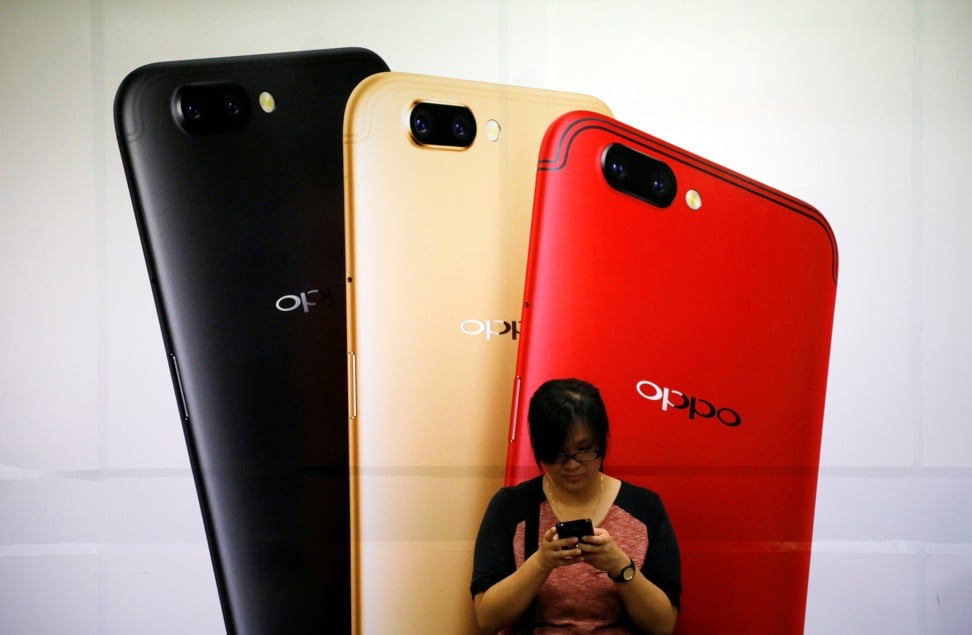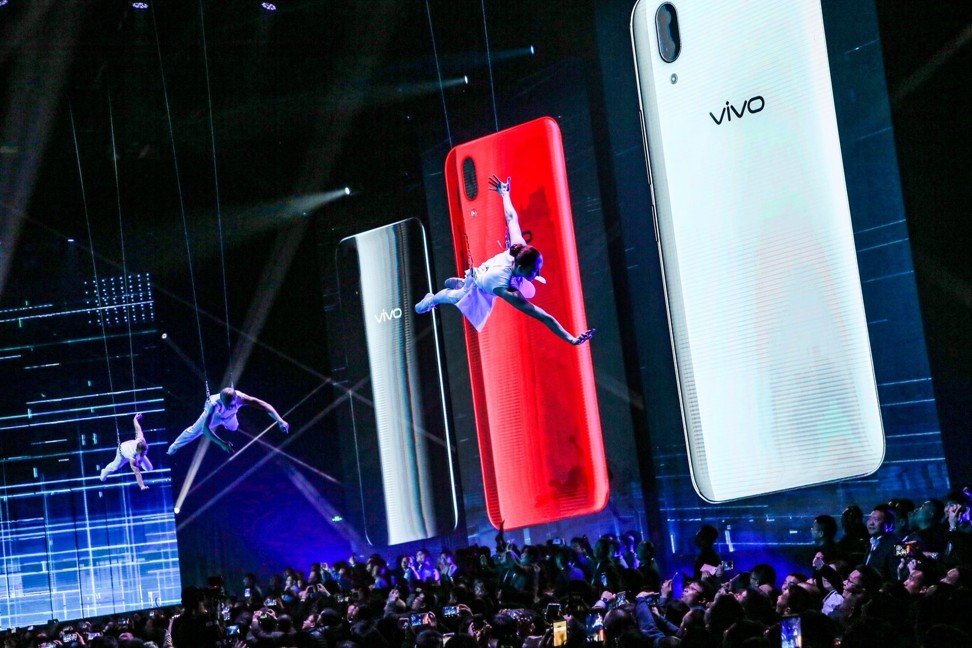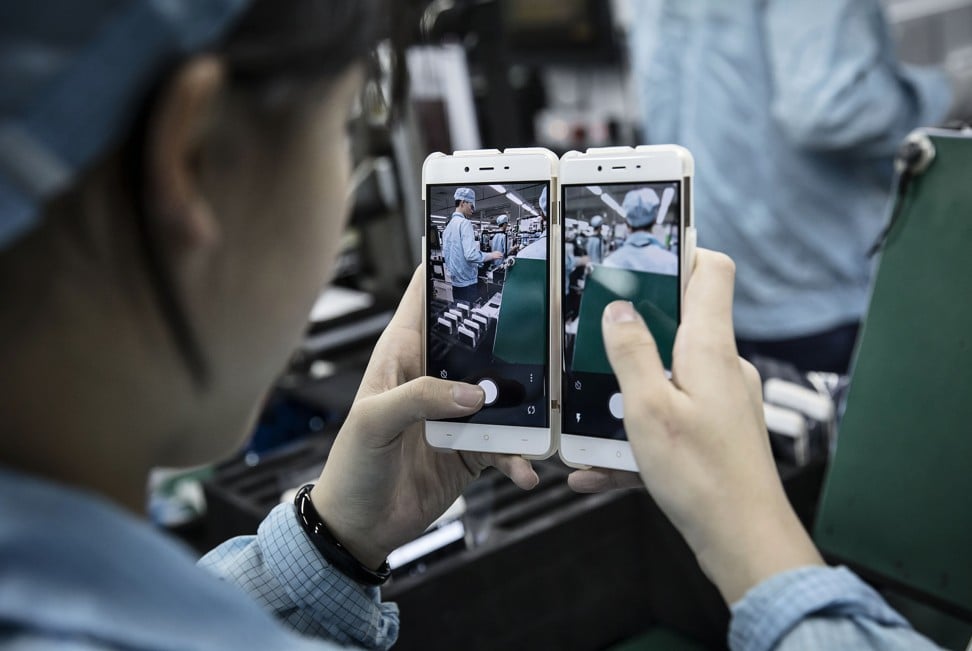
Meet the ‘godfather’ of China’s smartphone industry
- Duan Yongping is the founder and chairman of Dongguan-based BBK Electronics Corp
- Privately held BBK is behind smartphone brands Oppo, Vivo, OnePlus and Realme
Over a span of about 10 years, Chinese smartphone brands have not only topped sales in their home market, but also outshone major foreign rivals in many emerging and developed economies.
The success of four of those brands – Oppo and Vivo as well as recently established OnePlus and Realme – can be directly attributed to the guiding hand and investment savvy of reclusive Chinese billionaire entrepreneur, investor and philanthropist Duan Yongping.
He is the founder and chairman of privately held BBK Electronics Corp, a 24-year-old company based in the southern coastal city of Dongguan that now runs one of the world’s largest and most sophisticated electronics supply chains behind the production of a range of smartphones for the global market.
Duan, who will turn 58 years old next month, is widely regarded as the “godfather” of the Chinese smartphone industry for developing two brands, Oppo and Vivo, as large global players competing against the likes of Samsung Electronics, Apple, LG Electronics and mainland rival Huawei Technologies. OnePlus and Realme, which are backed by BBK and other investors, look to be the next big Chinese brands to conquer international markets.
Attempts to reach Duan and BBK were unsuccessful. The Chinese billionaire, who was interviewed by Bloomberg in 2017, was identified last year as an early investor in Pinduoduo, China’s third largest e-commerce company, which was founded by his friend and protégé Colin Huang Zheng. Duan’s net worth was estimated at 10 billion yuan (US$1.5 billion), according to the 2018 Hurun China Rich List.
In September last year, Duan also had a well-publicised conversation with Chinese students at Stanford University in Palo Alto, California, where his family lives. Duan and wife Liu Xin, a former journalist, had set up their family’s Enlight Foundation to provide Chinese students undergraduate scholarships and graduate fellowships at the university’s School of Engineering.
Duan first made international headlines near the end of June 2006, when he agreed to pay a then-record amount of US$620,100 in a bidding on eBay to have a power lunch at a New York steakhouse with renowned billionaire investment guru Warren Buffett, the chairman and chief executive of Berkshire Hathaway.
Born in March 1961 into a modest family in Nanchang, capital of Jiangxi province in southeast China, Duan in 1978 entered Zhejiang University in the eastern city of Hangzhou, where he majored in wireless electronics engineering.
After a short stint as a teacher at the adult education centre of the Beijing Radio Tube Factory, Duan pursued further studies at Beijing’s elite Renmin University of China, formerly known as People’s University, where he earned a master’s degree in economics in 1989.

That same year, he joined Zhongshan Yihua Group, located in the southern coastal province of Guangdong, to manage an ailing factory and turned it into a profitable business. He set up a unit that made cheap video game consoles, Subor Electronics Industry Corp, where he served as its chief executive.
Subor had much success in making education consoles, or learning machines, which were cheap copycats of Nintendo’s Famicom computers. That popular device, which was known as “Little Tyrant” in China and endorsed by Hong Kong martial arts superstar Jackie Chan at the time, helped Yihua achieve an annual profit of about 1 billion yuan (US$148 million) in 1995, compared with a loss of 2 million yuan when Duan joined the firm in 1989, according to a report by Week in China last year.
Despite that success, Duan had a public falling out with Yihua after his plan to spin off Subor and get a stake in the new company was rejected, the report said. He left Yihua in August 1995 and later that year, established electronics firm BBK, in which he had a controlling 70 per cent stake.

Duan divided BBK’s business into three segments: education electronics, led by Huang Yihe; audiovisual, which made VCD and DVD players, under Chen Mingyong; and communications, which made mobile phones and cordless telephones, under Shen Wei. BBK had early success with its VCD and DVD players, becoming the leading vendor of those devices in China.
In 1999, Duan introduced a partnership programme that eventually led to the creation of independent business entities and reduction of his BBK stake to about 17 per cent. That led to Oppo Electronics Corp being founded in 2004 by Chen, while Vivo Communication Technology was formed by Shen in 2009. Pete Lau, the founder and chief executive of OnePlus, and Sky Li Bingzhong, founder of Realme, previously worked as vice-presidents at Oppo.
In his interview with Bloomberg, Duan said making mobile phones was not exactly his expertise, but reckoned his company could do well in the industry. That decision proved prescient, as sales of Chinese-brand Android smartphones took off when 3G and later 4G mobile networks were rolled out across the country.
Demand for Chinese-brand mobile phones doubled each year between 2010 and 2012 during the period when 3G mobile services were being rolled out across the country, but gradually slowed down from 2013 ahead of the deployment of faster 4G services by the mainland’s three mobile network operators.
With the world’s biggest internet population and smartphone market, China had as many as 300 domestic mobile phone companies about three years ago. Cutthroat competition reduced that number to about 200 last year, as Chinese consumers bought fewer smartphones and the economy grew at a slower pace.
Only bet on the things you understand
The larger, deep-pocketed Chinese smartphone suppliers have won a big chunk of the domestic market through aggressive promotions, advanced designs and features, and offering a wide array of models in a range of prices to entice both younger and affluent buyers.
Oppo and Vivo, respectively, were China’s second and third biggest smartphone suppliers in 2018, with a combined 40 per cent market share, according to estimates by research firm Canalys. They were behind market leader Huawei, but ahead of Xiaomi and Apple in a year when domestic smartphone shipments fell to 396 million units, compared with 459 million in 2017.

In the global smartphone market last year, Oppo and Vivo took the fifth and six spots, respectively, with a combined 15 per cent share, according to data from Counterpoint Research. It said the top four-ranked vendors last year were Samsung, Apple, Huawei and Xiaomi.
Duan described the success of BBK along with sister brands Oppo and Vivo as no accident even if they were latecomers to the smartphone industry, according to a transcript of his talk with Stanford students last year. He attributed this to a focus on closely screening partners and suppliers, building “a great reputation”, making changes when something goes wrong and benfen, which loosely translates to integrity or honesty.
“In our early years, we often said our products provide good value at a cheap price,” Duan said. “But over the years, I’ve learned that we were just making excuses for inferior products.”
More than marketing and promotions, Duan said the goal was to focus on making a good products that meets users’ requirements, whether in the low-end or high-end segment of the smartphone market.
Lau referred to benfen numerous times in an interview with the Post last year as the moral code that guides OnePlus, which he said helped the company gain the trust of consumers in the US and other overseas markets.
Duan, who emigrated to the US in 2002 to join his family, said he frowns on making speculative investments. “Only bet on the things you understand,” he said. “Focus on understanding the business model and how the business makes money. Ninety-five per cent of investors focus on what the market will do. That’s wrong.”

